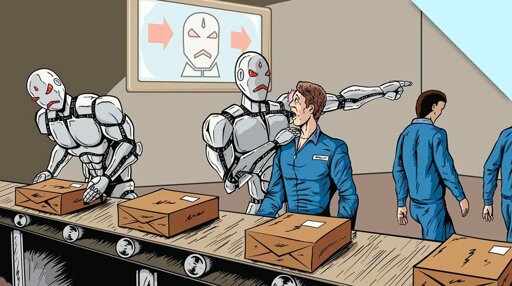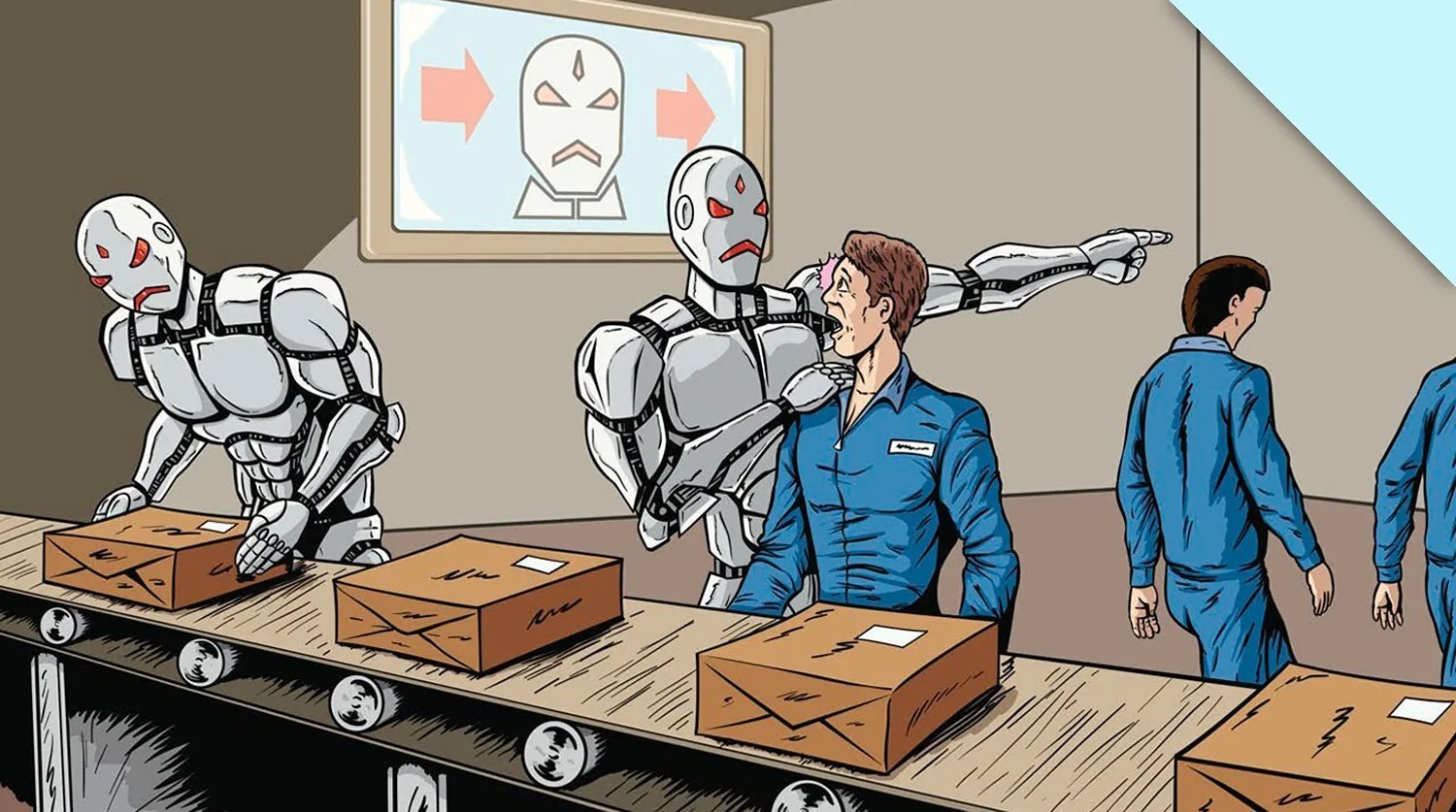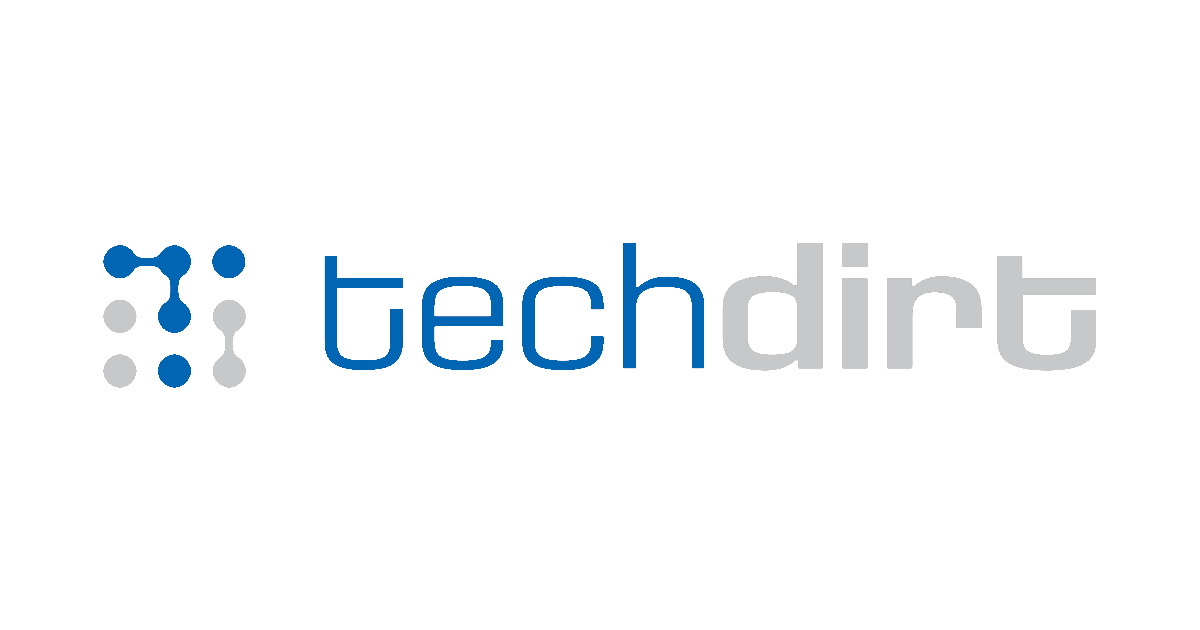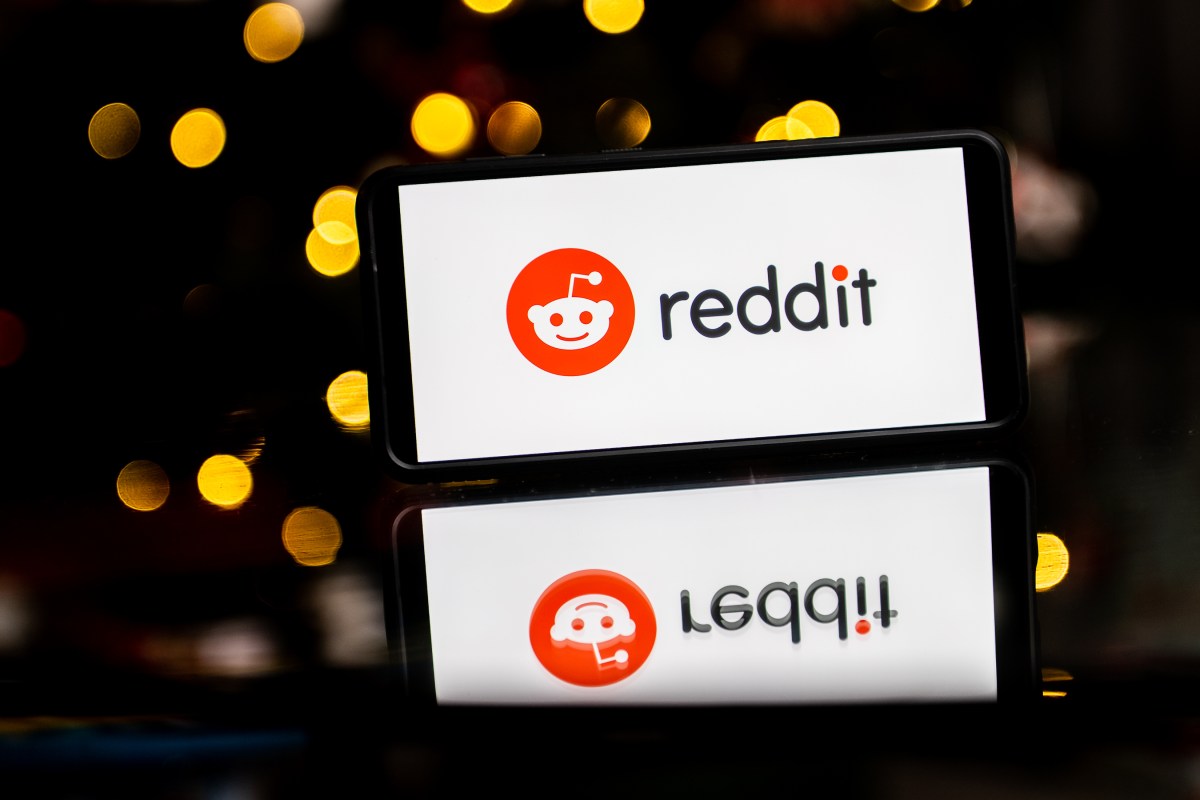AI will replace routine — freeing people for creativity.
-
AI will replace routine — freeing people for creativity.
That's what technological optimists have been saying for decades. But today, the reality is far more mundane: the widespread use of artificial intelligence (AI) is replacing people. The world of human labor is fading faster and more ruthlessly than we're used to. The problem is no longer just unemployment as a temporary phenomenon, but a system in which people, once laid off, have nowhere to go.
According to data from the world’s largest job board, Indeed, demand for IT jobs is rapidly declining. Backend development, testing, technical analysis — all of this is being automated faster than education systems can adapt. Since the end of 2022, global tech corporations have laid off more than 635,000 employees. Behind this figure are engineers, designers, analysts, UX specialists — people who, until recently, were considered the elite of the digital world.
These layoffs are not temporary. They reflect a structural shift in the logic of labor. GPT platforms, code generators, and automated data processing pipelines are making the traditional employment architecture obsolete. The key change is the speed. Technology is replacing people faster than governments, societies, and families can adapt.
This is precisely why the issue of universal basic income (UBI) is resurfacing — not as a utopian idea from leftist manifestos, but as a political mechanism to prevent the collapse of the social structure. In a world where even highly skilled labor is losing its uniqueness, a new question emerges: how can we ensure people have basic agency in a world where there’s no work for them?
Another paradox arises: layoffs are most common in sectors that were, until recently, considered the flagships of the "new economy." Technological progress, built by the hands of thousands of engineers, has become the very force pushing them out. In this sense, neural networks are not just changing the market — they are transforming the very notion of human usefulness. Right now — while replacement is happening in the upper tiers of professions — society must ask: who will be needed? And what will be the status of the rest?
Source – citation
The problem is that even those supposedly "freed for creativity" are now being squeezed by modern neural networks. After all, why pay a mid-level artisan-artist if a neural net can generate a more-or-less decent image with minimal cost? Voice actors encountered this same issue when it became clear that neural networks could already deliver passable voiceovers that closely resemble the original. No, it's not perfect yet — but give it a few years, and neural voiceovers will become the norm.
Naturally, in an environment where the state aims to reduce its basic obligations and the service sector is growing, the influx of "valuable creative professionals" into the labor market creates a permanent problem — one that will only worsen as neural networks (and in the future, quasi-AI) continue to evolve, bringing to life the grim forecasts of 1980s cyberpunk. It appears that within the capitalist system, this problem is unsolvable (as, indeed, are many others).
-
AI will replace routine — freeing people for creativity.
That's what technological optimists have been saying for decades. But today, the reality is far more mundane: the widespread use of artificial intelligence (AI) is replacing people. The world of human labor is fading faster and more ruthlessly than we're used to. The problem is no longer just unemployment as a temporary phenomenon, but a system in which people, once laid off, have nowhere to go.
According to data from the world’s largest job board, Indeed, demand for IT jobs is rapidly declining. Backend development, testing, technical analysis — all of this is being automated faster than education systems can adapt. Since the end of 2022, global tech corporations have laid off more than 635,000 employees. Behind this figure are engineers, designers, analysts, UX specialists — people who, until recently, were considered the elite of the digital world.
These layoffs are not temporary. They reflect a structural shift in the logic of labor. GPT platforms, code generators, and automated data processing pipelines are making the traditional employment architecture obsolete. The key change is the speed. Technology is replacing people faster than governments, societies, and families can adapt.
This is precisely why the issue of universal basic income (UBI) is resurfacing — not as a utopian idea from leftist manifestos, but as a political mechanism to prevent the collapse of the social structure. In a world where even highly skilled labor is losing its uniqueness, a new question emerges: how can we ensure people have basic agency in a world where there’s no work for them?
Another paradox arises: layoffs are most common in sectors that were, until recently, considered the flagships of the "new economy." Technological progress, built by the hands of thousands of engineers, has become the very force pushing them out. In this sense, neural networks are not just changing the market — they are transforming the very notion of human usefulness. Right now — while replacement is happening in the upper tiers of professions — society must ask: who will be needed? And what will be the status of the rest?
Source – citation
The problem is that even those supposedly "freed for creativity" are now being squeezed by modern neural networks. After all, why pay a mid-level artisan-artist if a neural net can generate a more-or-less decent image with minimal cost? Voice actors encountered this same issue when it became clear that neural networks could already deliver passable voiceovers that closely resemble the original. No, it's not perfect yet — but give it a few years, and neural voiceovers will become the norm.
Naturally, in an environment where the state aims to reduce its basic obligations and the service sector is growing, the influx of "valuable creative professionals" into the labor market creates a permanent problem — one that will only worsen as neural networks (and in the future, quasi-AI) continue to evolve, bringing to life the grim forecasts of 1980s cyberpunk. It appears that within the capitalist system, this problem is unsolvable (as, indeed, are many others).
let's see how many people actually read the post and not just a title.

stolen from here: https://colonelcassad.livejournal.com/9823609.html#cutid1
who stole from here: https://t.me/Taynaya_kantselyariya/12400 -
AI will replace routine — freeing people for creativity.
That's what technological optimists have been saying for decades. But today, the reality is far more mundane: the widespread use of artificial intelligence (AI) is replacing people. The world of human labor is fading faster and more ruthlessly than we're used to. The problem is no longer just unemployment as a temporary phenomenon, but a system in which people, once laid off, have nowhere to go.
According to data from the world’s largest job board, Indeed, demand for IT jobs is rapidly declining. Backend development, testing, technical analysis — all of this is being automated faster than education systems can adapt. Since the end of 2022, global tech corporations have laid off more than 635,000 employees. Behind this figure are engineers, designers, analysts, UX specialists — people who, until recently, were considered the elite of the digital world.
These layoffs are not temporary. They reflect a structural shift in the logic of labor. GPT platforms, code generators, and automated data processing pipelines are making the traditional employment architecture obsolete. The key change is the speed. Technology is replacing people faster than governments, societies, and families can adapt.
This is precisely why the issue of universal basic income (UBI) is resurfacing — not as a utopian idea from leftist manifestos, but as a political mechanism to prevent the collapse of the social structure. In a world where even highly skilled labor is losing its uniqueness, a new question emerges: how can we ensure people have basic agency in a world where there’s no work for them?
Another paradox arises: layoffs are most common in sectors that were, until recently, considered the flagships of the "new economy." Technological progress, built by the hands of thousands of engineers, has become the very force pushing them out. In this sense, neural networks are not just changing the market — they are transforming the very notion of human usefulness. Right now — while replacement is happening in the upper tiers of professions — society must ask: who will be needed? And what will be the status of the rest?
Source – citation
The problem is that even those supposedly "freed for creativity" are now being squeezed by modern neural networks. After all, why pay a mid-level artisan-artist if a neural net can generate a more-or-less decent image with minimal cost? Voice actors encountered this same issue when it became clear that neural networks could already deliver passable voiceovers that closely resemble the original. No, it's not perfect yet — but give it a few years, and neural voiceovers will become the norm.
Naturally, in an environment where the state aims to reduce its basic obligations and the service sector is growing, the influx of "valuable creative professionals" into the labor market creates a permanent problem — one that will only worsen as neural networks (and in the future, quasi-AI) continue to evolve, bringing to life the grim forecasts of 1980s cyberpunk. It appears that within the capitalist system, this problem is unsolvable (as, indeed, are many others).
Ah yes, creativity, the thing that payed the bills after every new innovation that got people fired.
-
let's see how many people actually read the post and not just a title.

stolen from here: https://colonelcassad.livejournal.com/9823609.html#cutid1
who stole from here: https://t.me/Taynaya_kantselyariya/12400I read the post, but with this kind of title people actually should just skip the article and ridicule the clickbait title. Because it's intentionally selling the opposite message of the actual post. And that opposite message is not worth reading in detail.
-
I read the post, but with this kind of title people actually should just skip the article and ridicule the clickbait title. Because it's intentionally selling the opposite message of the actual post. And that opposite message is not worth reading in detail.
Anyone who's used AI for more than about 10 minutes knows that it isn't ready to replace human workers yet.
It's always funny when tech companies decide to fire all of their programmers so that they can replace them with AI only to have to rehire them again all of about 2 months later
-
Anyone who's used AI for more than about 10 minutes knows that it isn't ready to replace human workers yet.
It's always funny when tech companies decide to fire all of their programmers so that they can replace them with AI only to have to rehire them again all of about 2 months later
It literally replaced bunch of jobs at my friend company already.
-
Ah yes, creativity, the thing that payed the bills after every new innovation that got people fired.
and, besides that... creativity? so you can make art, that will serve as training data for the AIs that will be taking all the creativity jobs.
I mean yeah in a world where UBI is a thing, where food, clothing and basic shelter are a given, working is an extra if you want to live a fancier life... the idea of AI/machinery taking the majority of the jobs and most people just moving to creative pursuits and passion projects is the utopia concept.
-
AI will replace routine — freeing people for creativity.
That's what technological optimists have been saying for decades. But today, the reality is far more mundane: the widespread use of artificial intelligence (AI) is replacing people. The world of human labor is fading faster and more ruthlessly than we're used to. The problem is no longer just unemployment as a temporary phenomenon, but a system in which people, once laid off, have nowhere to go.
According to data from the world’s largest job board, Indeed, demand for IT jobs is rapidly declining. Backend development, testing, technical analysis — all of this is being automated faster than education systems can adapt. Since the end of 2022, global tech corporations have laid off more than 635,000 employees. Behind this figure are engineers, designers, analysts, UX specialists — people who, until recently, were considered the elite of the digital world.
These layoffs are not temporary. They reflect a structural shift in the logic of labor. GPT platforms, code generators, and automated data processing pipelines are making the traditional employment architecture obsolete. The key change is the speed. Technology is replacing people faster than governments, societies, and families can adapt.
This is precisely why the issue of universal basic income (UBI) is resurfacing — not as a utopian idea from leftist manifestos, but as a political mechanism to prevent the collapse of the social structure. In a world where even highly skilled labor is losing its uniqueness, a new question emerges: how can we ensure people have basic agency in a world where there’s no work for them?
Another paradox arises: layoffs are most common in sectors that were, until recently, considered the flagships of the "new economy." Technological progress, built by the hands of thousands of engineers, has become the very force pushing them out. In this sense, neural networks are not just changing the market — they are transforming the very notion of human usefulness. Right now — while replacement is happening in the upper tiers of professions — society must ask: who will be needed? And what will be the status of the rest?
Source – citation
The problem is that even those supposedly "freed for creativity" are now being squeezed by modern neural networks. After all, why pay a mid-level artisan-artist if a neural net can generate a more-or-less decent image with minimal cost? Voice actors encountered this same issue when it became clear that neural networks could already deliver passable voiceovers that closely resemble the original. No, it's not perfect yet — but give it a few years, and neural voiceovers will become the norm.
Naturally, in an environment where the state aims to reduce its basic obligations and the service sector is growing, the influx of "valuable creative professionals" into the labor market creates a permanent problem — one that will only worsen as neural networks (and in the future, quasi-AI) continue to evolve, bringing to life the grim forecasts of 1980s cyberpunk. It appears that within the capitalist system, this problem is unsolvable (as, indeed, are many others).
So far, AI has replaced little routine and has tried to replace a lot of art and enjoyment
-
So far, AI has replaced little routine and has tried to replace a lot of art and enjoyment
You guys are legit delusional.
Bill Gates says this. Bill Gates says AI is doing labor substitution both blue and white collar.
-
So far, AI has replaced little routine and has tried to replace a lot of art and enjoyment
AI has been able to take over the mediocre work by people who should be ashamed to call themselves creators in the first place.
I, for one, welcome them to get a real job like the rest of us.
-
AI will replace routine — freeing people for creativity.
That's what technological optimists have been saying for decades. But today, the reality is far more mundane: the widespread use of artificial intelligence (AI) is replacing people. The world of human labor is fading faster and more ruthlessly than we're used to. The problem is no longer just unemployment as a temporary phenomenon, but a system in which people, once laid off, have nowhere to go.
According to data from the world’s largest job board, Indeed, demand for IT jobs is rapidly declining. Backend development, testing, technical analysis — all of this is being automated faster than education systems can adapt. Since the end of 2022, global tech corporations have laid off more than 635,000 employees. Behind this figure are engineers, designers, analysts, UX specialists — people who, until recently, were considered the elite of the digital world.
These layoffs are not temporary. They reflect a structural shift in the logic of labor. GPT platforms, code generators, and automated data processing pipelines are making the traditional employment architecture obsolete. The key change is the speed. Technology is replacing people faster than governments, societies, and families can adapt.
This is precisely why the issue of universal basic income (UBI) is resurfacing — not as a utopian idea from leftist manifestos, but as a political mechanism to prevent the collapse of the social structure. In a world where even highly skilled labor is losing its uniqueness, a new question emerges: how can we ensure people have basic agency in a world where there’s no work for them?
Another paradox arises: layoffs are most common in sectors that were, until recently, considered the flagships of the "new economy." Technological progress, built by the hands of thousands of engineers, has become the very force pushing them out. In this sense, neural networks are not just changing the market — they are transforming the very notion of human usefulness. Right now — while replacement is happening in the upper tiers of professions — society must ask: who will be needed? And what will be the status of the rest?
Source – citation
The problem is that even those supposedly "freed for creativity" are now being squeezed by modern neural networks. After all, why pay a mid-level artisan-artist if a neural net can generate a more-or-less decent image with minimal cost? Voice actors encountered this same issue when it became clear that neural networks could already deliver passable voiceovers that closely resemble the original. No, it's not perfect yet — but give it a few years, and neural voiceovers will become the norm.
Naturally, in an environment where the state aims to reduce its basic obligations and the service sector is growing, the influx of "valuable creative professionals" into the labor market creates a permanent problem — one that will only worsen as neural networks (and in the future, quasi-AI) continue to evolve, bringing to life the grim forecasts of 1980s cyberpunk. It appears that within the capitalist system, this problem is unsolvable (as, indeed, are many others).
Good. It's sad and telling to see white-collar workers get angry about being replaced by machines.
You people didn't care when it was blue-collar workers being replaced.
Hypocrites.
-
and, besides that... creativity? so you can make art, that will serve as training data for the AIs that will be taking all the creativity jobs.
I mean yeah in a world where UBI is a thing, where food, clothing and basic shelter are a given, working is an extra if you want to live a fancier life... the idea of AI/machinery taking the majority of the jobs and most people just moving to creative pursuits and passion projects is the utopia concept.
So let's make that world.
I swear, it's just sad watching how stupid most people are in regards to AI and working.
It's like, the entire point of getting paid for a job is because it's something we wouldn't otherwise do for free. Using machines to do the work that we wouldn't do unless we got paid for has been the direction we've been going in since the invention of the fucking wheel.
This is hypocrisy, greed, and entitlement on full display. Neo-liberal white collar workers are mad they're now experiencing the same fate blue collar workers experienced decades ago.
-
Good. It's sad and telling to see white-collar workers get angry about being replaced by machines.
You people didn't care when it was blue-collar workers being replaced.
Hypocrites.
I care about all workers
-
I care about all workers
So you are against having machines do the work of blue collar workers?
We should all be out in the fields with plows instead of using a tractor and assembling everything by hand in factories?






